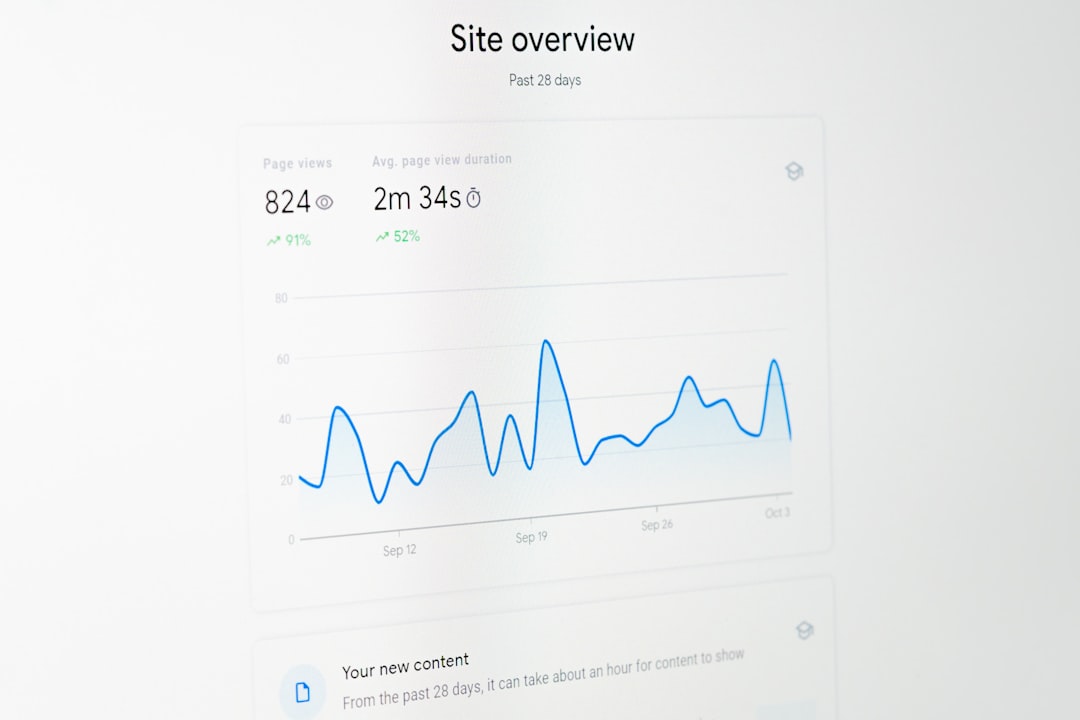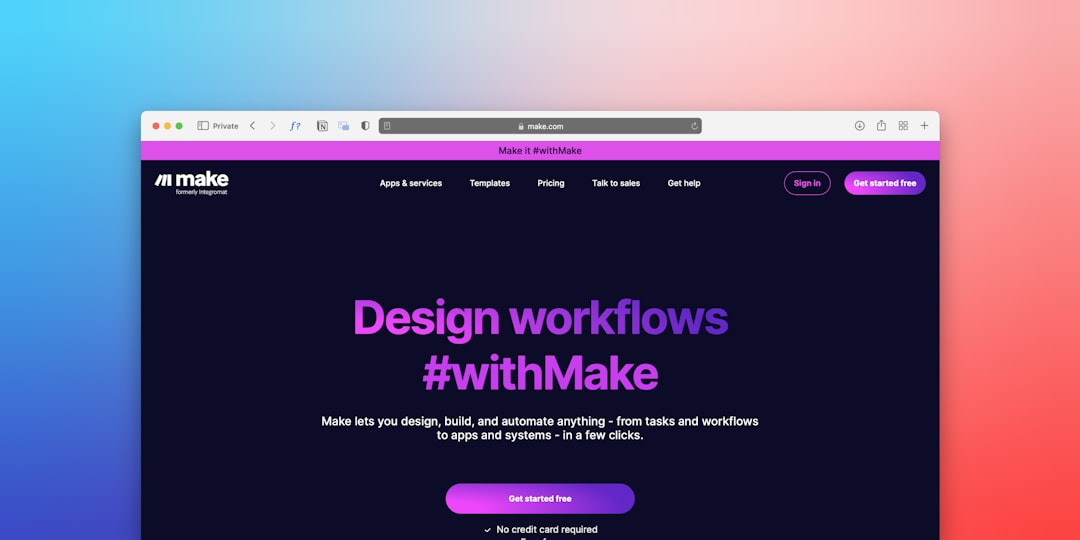For today’s tech entrepreneurs, creating a professional, converting website is more essential than ever. Whether launching a SaaS product, starting a digital agency, or building an audience through content, a reliable and straightforward site-building tool is key to bringing an idea online quickly and efficiently.
TLDR: Tech entrepreneurs need simplicity, speed, and scalability when building websites. Tools like Webflow, Carrd, and Framer offer intuitive, code-optional platforms that allow fast deployment without sacrificing design. The best platforms also integrate well with marketing and analytics tools to support growth. Choosing the right one depends on whether the goal is rapid prototyping, a landing page, or a full-scale web presence.
Why Simple Site Tools Matter to Tech Entrepreneurs
Tech entrepreneurs often wear multiple hats—from product designer to marketer to developer. In the early stages of a startup, there’s usually limited time or budget to hire dedicated web developers or designers. This is where simple, no-fuss website building tools become invaluable. These platforms enable founders to:
- Launch fast: Get a website live in hours, not weeks.
- Focus on core features: Build landing pages or MVPs while iterating the product.
- Save money: Avoid expensive development fees with drag-and-drop or low-code interfaces.
- Test and scale: Use integrated tools to A/B test and iterate based on user behavior.
Top Simple Site Tools for Tech Founders
1. Webflow
Best for design freedom and responsive complexity
Webflow stands at the intersection of ease-of-use and design sophistication. It’s perfect for entrepreneurs looking for design customization without writing heavy code. While it may require more time to learn than basic ‘drag-and-drop’ tools, the payoff is immense for those wanting pixel-perfect layouts with custom interactions.
Notable features:
- Visual CSS/HTML builder
- CMS-enabled pages and user roles
- Animations and CMS logic
- Great integrations with Zapier, Airtable, and analytics tools

Webflow is particularly ideal for landing pages, product overviews, and marketing campaigns that need to look polished but also convert well.
2. Carrd
Best for ultra-simple, fast one-page sites
Carrd is a clean, minimalist one-page site builder that is beloved among startup founders for its speed, simplicity, and surprisingly robust features for such a lightweight platform. It’s ideal for startups needing to launch quickly with a personal site, a pre-launch MVP sign-up page, or a simple product showcase.
Key advantages:
- Super-fast setup and publishing
- Affordable pricing (many features available even in the free version)
- Custom forms, embeds, and integrations with external tools
- Templates designed specifically for call-to-action goals
If you need a way to pitch an idea, gather emails, or introduce a concept without layers of complexity, Carrd is the go-to solution for many founders.
3. Framer
Best for Figma-like flexibility and performance-oriented sites
Framer has gained traction among designers and developers for its seamless visual UI, intuitive sharing tools, and modern performance. Designed with both static sites and responsive flows in mind, it offers mobile-first flexibility, custom animations, and speedy previews. Framer is perfect for tech entrepreneurs in design-centric domains or startups launching marketing-heavy web projects.
Why it works well:
- Live collaboration and preview ability
- SEO-ready pages and blazing-fast load times
- Integrations with Notion, Figma, and more for dynamic content
- No-code animations and conditional rendering snippets

With high visual control and deep performance optimization, Framer is an excellent platform for those planning long-term audience engagement.
4. Typedream
Best for Notion-like editing with better design
Typedream has made a name for itself by offering the feel of Notion with the aesthetic polish of Webflow. It allows non-technical founders to launch elegant, functional websites with little overhead. Its interface feels familiar to those who use collaborative writing tools and is honed specifically for fast, responsive results.
Great features include:
- Native analytics and form support
- Built-in SEO and social card features
- Simple interface = less learning curve
- One-click Notion import functionality
Great for tech bloggers, directories, and early-stage product roadmaps, Typedream is perfect for founders who prefer minimal distractions while still producing a professional online presence.
5. Softr
Best for creating apps from Airtable and databases
Softr is ideal if you are building directory-style apps, marketplaces, or member portals. Its seamless connection to Airtable means that product catalogs, user-generated content, and back-end data can be updated automatically with no manual coding or syncing.
Features worth noting:
- Memberships and role-based content visibility
- Template-driven pages for SaaS, HR portals, and community platforms
- Dynamic filters, payment gateways, and logins
- Public and private site control
Softr helps bring light technical products from idea to web app without hiring a development team, and it’s increasingly trusted by bootstrapped startups and no-code enthusiasts alike.
Bonus Tools to Complement Your Website
Beyond picking the right builder, tech entrepreneurs often rely on additional tools to make their website more effective:
- Fathom Analytics: A privacy-first, lightweight analytics alternative to Google Analytics
- Mailerlite: Integrates into most simple site tools for email subscriptions and automations
- Zapier: Lets you automate workflows like “form submission → CRM entry → Slack alert”
- Tally: Build forms and surveys that plug directly into Carrd, Webflow, or Framer

These complementary tools help ensure data collection, user feedback, and communication are all set up from day one—crucial for determining early traction.
Conclusion
Choosing the right simple site-building tool can fast-track a tech entrepreneur’s journey from idea to product launch. Whether the goal is visual flexibility, speed-to-market, or app-like interactivity, there’s a tool to match every workflow. Webflow is great for design-heavy projects, Carrd for quick landing pages, and Softr when building databases into user experiences. The key is identifying what’s essential to your startup today, while leaving room to grow and adapt in the future.
FAQs
- Q: Which site builder is the easiest to use?
A: Carrd is arguably the easiest to use for beginners. It allows anyone to produce a clean and modern one-page site in minutes. - Q: Which site tool offers the greatest design control?
A: Webflow offers unmatched design flexibility with its visual interface that outputs clean, exportable code and animations. - Q: Can I use these tools for an e-commerce project?
A: While some tools like Framer and Webflow offer integration with e-commerce solutions, they may not offer full-scale e-commerce functionality like Shopify. For MVPs, they work well with Stripe embeds and buy buttons. - Q: Which tools are best for integrating with Airtable or Notion?
A: Softr syncs beautifully with Airtable, and Typedream features strong Notion-based import capabilities. - Q: Are these platforms SEO-friendly?
A: Yes. Platforms like Webflow, Framer, and Typedream offer on-page SEO tools including meta tags and performance optimization. Be sure to implement proper structure and analytics.

